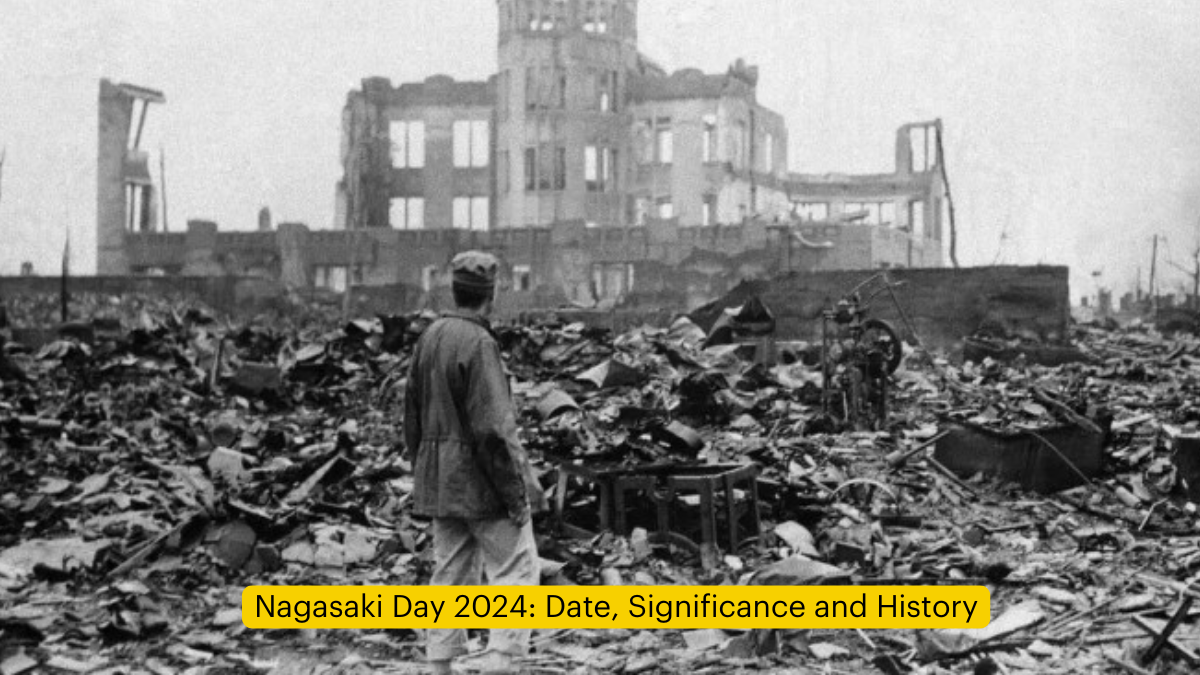Nagasaki Day is an annual observance that commemorates one of the most devastating events in human history – the atomic bombing of Nagasaki, Japan, during World War II. This solemn occasion serves as a powerful reminder of the catastrophic consequences of nuclear warfare and underscores the critical importance of global peace and disarmament efforts.
Date and Theme for Nagasaki Day 2024
When is Nagasaki Day Observed?
Nagasaki Day is commemorated each year on August 9th, marking the exact date of the atomic bombing in 1945. In 2024, this significant day will fall on a Friday, providing an opportunity for extended reflection and commemoration over the weekend.
Nagasaki Day-Theme for 2024
The theme for Nagasaki Day 2024 is:
“Together with the Hibakusha, let us achieve a nuclear weapon-free, peaceful, and just world—for the future of humankind and our planet.“
This theme emphasizes several key points:
- Solidarity with survivors: The term “Hibakusha” refers to the survivors of the atomic bombings. Their experiences and testimonies are crucial in understanding the human cost of nuclear weapons.
- Nuclear disarmament: The call for a “nuclear weapon-free” world reflects the ongoing global efforts to eliminate these devastating weapons.
- Peace and justice: The theme highlights the interconnection between peace, justice, and nuclear disarmament.
- Future-focused: By mentioning “the future of humankind and our planet,” the theme underscores the long-term consequences of nuclear warfare and the importance of prevention for future generations.
Historical Background
The Bombing of Nagasaki
On August 9, 1945, at 11:02 AM local time, a U.S. B-29 bomber named Bockscar dropped an atomic bomb codenamed “Fat Man” on the city of Nagasaki. This event occurred just three days after the atomic bombing of Hiroshima, making it the second and, to date, the last use of nuclear weapons in warfare.
Immediate Impact
The detonation of the atomic bomb over Nagasaki had catastrophic consequences:
- An estimated 40,000 people were killed instantly.
- Over the following two to four months, an additional 35,000 to 40,000 people died due to the immediate effects of the bombing.
- The city was transformed into a wasteland, with buildings and houses vaporized, leaving behind a landscape of rubble and fire.
Long-term Consequences
The aftermath of the bombing continued to claim lives and affect survivors for years:
- Tens of thousands more people died in the following years due to injuries and radiation exposure.
- Survivors, known as Hibakusha, faced severe physical injuries, radiation sickness, and profound psychological trauma.
- The bombing left a lasting impact on the environment, health, and social fabric of Nagasaki.
End of World War II
The bombings of Hiroshima and Nagasaki played a significant role in bringing World War II to an end. Japan announced its surrender on August 15, 1945, less than a week after the Nagasaki bombing, effectively concluding the most destructive conflict in human history.
Significance of Nagasaki Day
Remembrance and Education
Nagasaki Day serves multiple important purposes:
- Honoring the victims: It provides an opportunity to remember and pay respects to those who lost their lives in the bombing and its aftermath.
- Educating future generations: The day raises awareness about the devastating effects of nuclear weapons, ensuring that the lessons of history are not forgotten.
- Promoting peace: It serves as a platform to advocate for global peace and conflict resolution through non-violent means.
Symbol of Nuclear Disarmament
Nagasaki has become a powerful symbol in the global movement for nuclear disarmament:
- The city’s journey from devastation to recovery demonstrates human resilience and the possibility of rebuilding after unimaginable destruction.
- Nagasaki’s commitment to peace-building has made it a leading voice in international efforts to eliminate nuclear weapons.
Ethical Considerations
The day encourages reflection on the ethical implications of nuclear weapons:
- It raises questions about the morality of developing and possessing weapons capable of such massive destruction.
- It prompts discussions on the responsibilities of nations in ensuring global security without resorting to nuclear deterrence.
Observance and Commemoration
Memorial Ceremonies
Nagasaki Day is marked by various solemn events:
- Peace Memorial Ceremony: Held at the Nagasaki Peace Park, this official ceremony includes speeches, offerings of water (symbolizing the victims’ cries for water), and the release of doves as a symbol of peace.
- Moments of silence: Observed at 11:02 AM, marking the exact time of the bombing.
- Lantern floating: In the evening, thousands of lanterns are set afloat on rivers, carrying messages of peace.
Educational Initiatives
Various programs aim to educate people about the bombing and its consequences:
- Museum exhibitions: The Nagasaki Atomic Bomb Museum provides a detailed account of the bombing and its aftermath.
- Survivor testimonies: Hibakusha share their experiences, providing powerful firsthand accounts of the bombing’s impact.
- School programs: Educational institutions often incorporate lessons about Nagasaki and nuclear disarmament into their curricula around this time.
International Involvement
Nagasaki Day has gained international recognition:
- United Nations observance: The UN acknowledges the day as part of its efforts to promote nuclear disarmament and world peace.
- Global peace movements: Anti-nuclear and peace organizations worldwide often organize events in solidarity with Nagasaki.




 Important Days in March 2026: Check the ...
Important Days in March 2026: Check the ...
 World Wildlife Day 2026: Why Medicinal P...
World Wildlife Day 2026: Why Medicinal P...
 National Science Day 2026: Honouring the...
National Science Day 2026: Honouring the...








